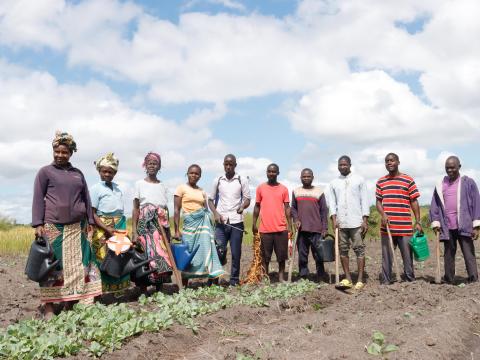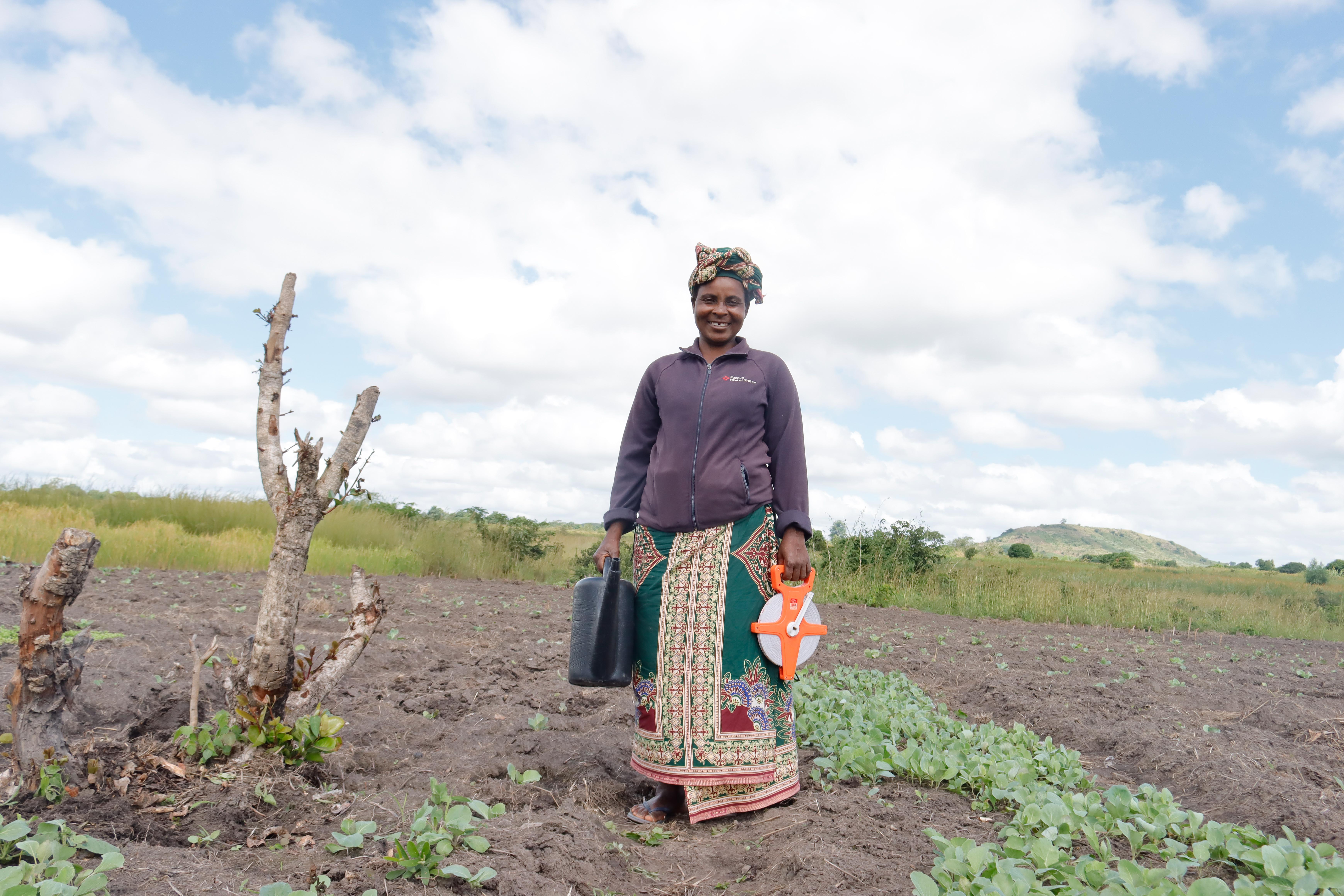Awakening Farmers' Potential to Feed Schoolchildren in Mozambique

By Benjamim Capito, Communications Coordinator
The growing demand for fresh vegetables to supply daily school meals for early-grade students is sparking renewed interest among small-scale farmers in commercial agriculture, revitalizing local groups and associations.
One such example is the “Lions of Manganira,” a farmers' group from Milange district in central Zambézia province. They have found renewed motivation to boost vegetable production, capitalizing on the area's favorable agricultural conditions.
“We began our activities in 2022, but due to a lack of resources like agricultural inputs, the group was fading away. We resumed our activities in 2025 because we saw an opportunity to sell our vegetables to local schools,” said Lídia, the group's leader.
In an area surrounded by green hills and rivers flowing through the valleys, the farmers have planted tomatoes, onions, cabbage, lettuce, and orange-fleshed sweet potatoes. Their goal is to supply the local school with fresh vegetables to meet the children's daily nutritional needs while also securing a share of the local market.
World Vision Mozambique (WV-Moz) through the Partnering for Sustainable Education Outcomes (PARES) project is providing a platform for farmers to strengthen their organizational skills and leverage the Local and Regional Procurement (LRP) approach. This initiative serves as an additional source of food to sustain the school feeding program.

After receiving training on the basics of managing associations, Lídia, chair of the “Lions of Manganira,” is leading the group to upscale production.
The PARES project has also assisted the group with cabbage, tomato, carrot and onion seeds, watering cans, weighing scale and a sprayer.
“Witnessing our children receive daily school meals motivates us to cultivate vegetables to supply the schools. With the food provided in schools, children can endure the day and don’t skip classes like they used to,” said Lídia.
The “Lions of Manganira” are among 74 local farmer groups in Zambézia and Nampula provinces that the PARES project supports to build their capacity to provide food to schools. Beyond technical agricultural support, WV-Moz, through the project, is assisting farmer groups in formalizing their association status with the government. Within this partnership, the associations will be committed to donate 30% of their production to the schools.
Additionally, the program will aid farmer groups in opening bank accounts, developing business plans with support from the local economic authorities, in order to connect them with financial institutions. This support offers a beacon of hope to sustain school feeding programs long after the project's conclusion.